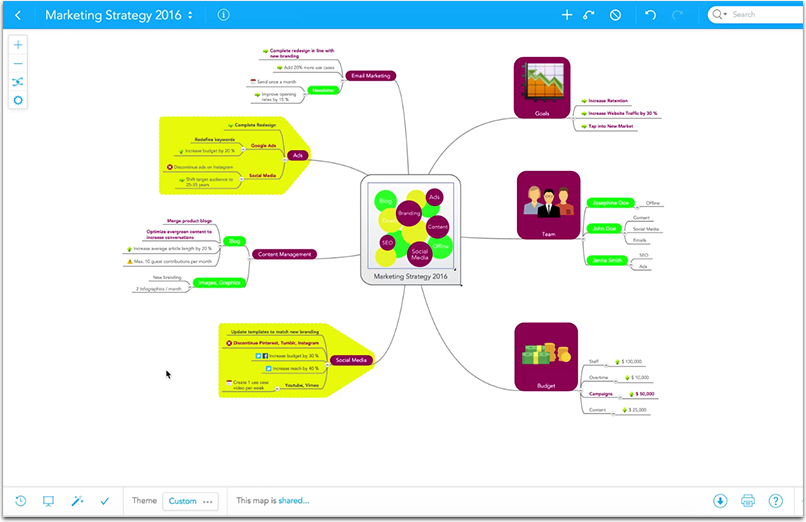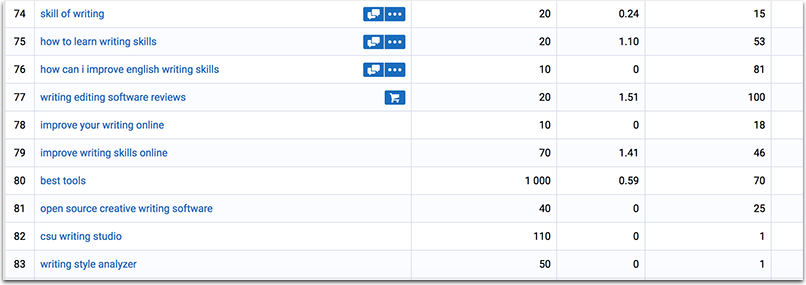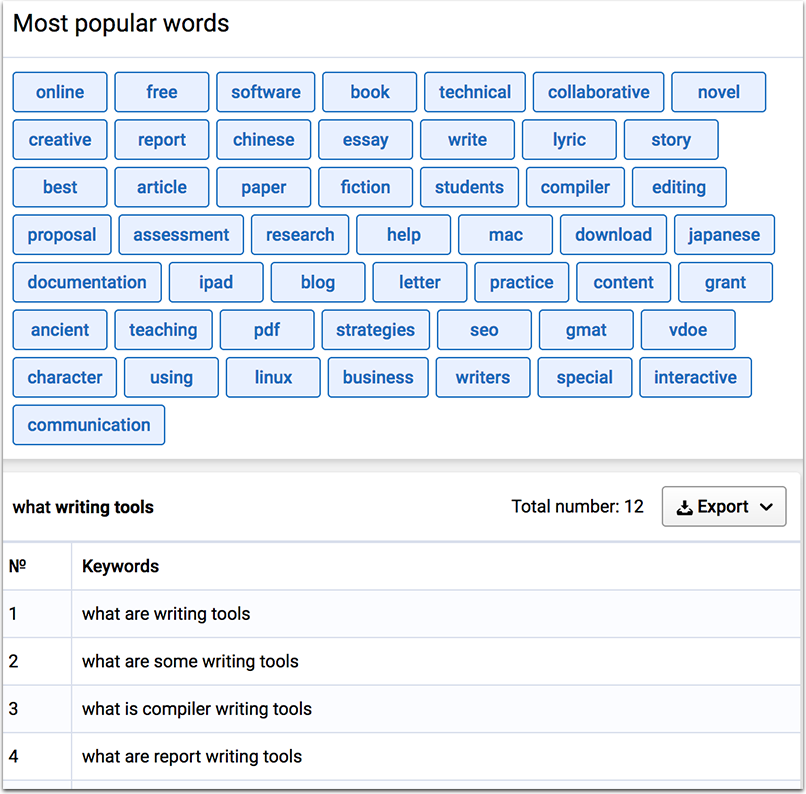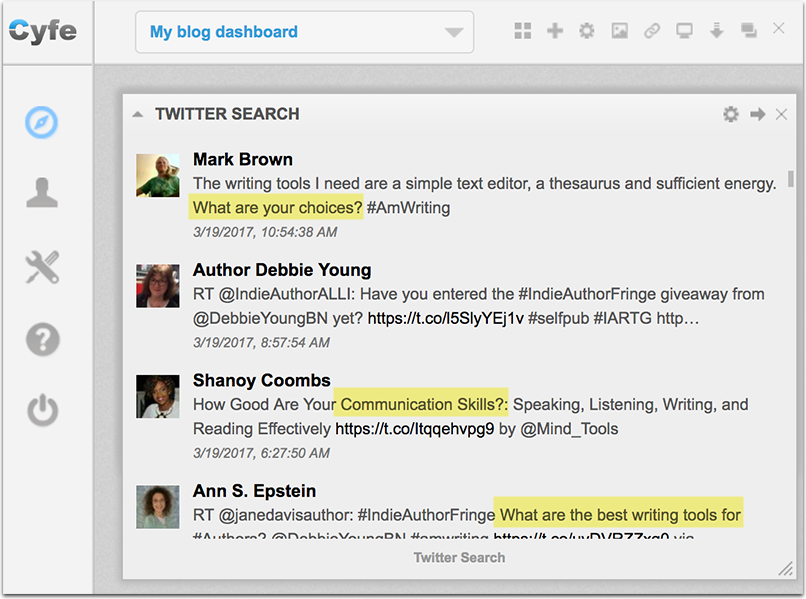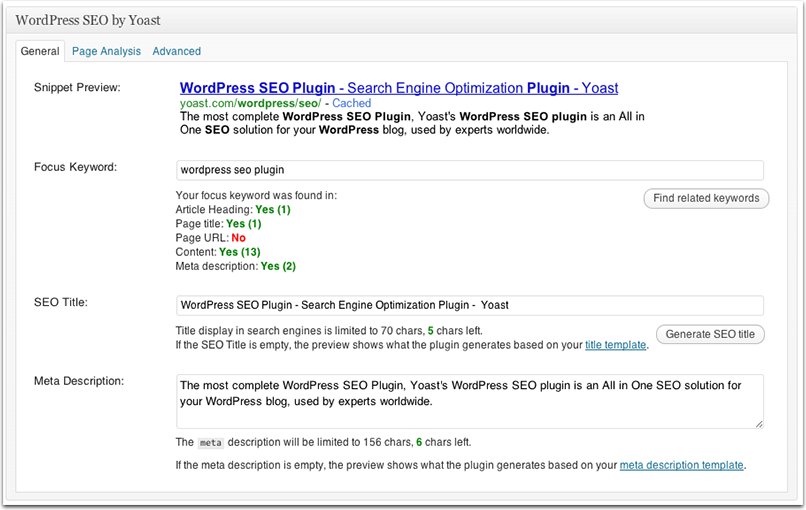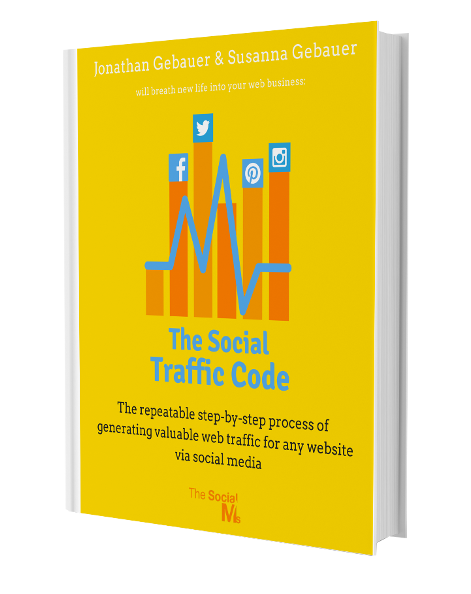The following is a guest post by Ann Smarty. Ann Smarty is the Brand and Community manager at InternetMarketingNinjas.com as well as the founder of MyBlogU.com. Ann has been into Internet Marketing for 10 years, she is the former Editor-in-Chief of Search Engine Journal and contributor to prominent search and social blogs including Small Biz Trends and Mashable.
Ann is also the frequent speaker at Pubcon and the host of regular Twitter chats #vcbuzz and #myblogu
Keyword research is one of the basic content writing steps: It lies at the foundation of any article you intend to write.
But how to perform keyword research (and do it right)?
Before you read on - we have various resources that show you exactly how to use social networks to gain massive traffic and leads. For instance, check out the following:
FREE Step-by-Step Twitter Marketing GuideFREE Pinterest Marketing Ebook
This guide aims at helping a blogger to better understand the keyword research process and to become more efficient at finding valuable keywords and implementing them in the content.
What is Keyword Research
As simple as it may sound keyword research is about selecting phrases to base your content on. More often than not, it means discovering words people tend to type in a search box in search engines when researching the topic your blog is about.
A keyword consists of two parts:
- A core term (this is the word/phrase you are looking to expand)
- A keyword modifier (this part make your core term more specific).
For example, if your core term is [writing tools], your modifiers could be [free], [desktop], [best], etc.
As a rule, keyword modifiers make a core term less competitive, i.e. there are fewer web pages talking about [free writing tools], than [writing tools]. That being said, the purpose of a keyword research is to discover terms that are easier to rank in Google search results.
Keyword core terms plus a keyword modifier are also referred to as long tail keywords.
Therefore keyword research consists of three steps:
- Researching core terms
- Researching keywords (i.e. expanding core terms with keyword modifiers)
- Researching competition (i.e. selecting keywords that have lower competition)
Researching Core Terms
This is always the basic step that comes first. It’s also the step you’ll need to repeat regularly when working on the site content. Addressing your core terms is one of the best ways to discover fresh content ideas.
Let’s say you have a blog focusing on writing tools and one day you feel like you have covered every single writing tool out there. We often end up there, feeling absolutely stuck. What you can do now is to discover related core terms that express ideas that would be interesting for your already formed audience.
Hey, before you read on - we have in various FREE in-depth guides on similar topics that you can download. For this post, check out:
FREE workbook: CREATE AWESOME BLOG POSTSFREE Beginner's Guide: START A BLOG
These could be:
- editing tools
- brainstorming tools
- you name it
 Finding new core terms will not only bring in hundreds of new ideas to expand upon, but it will also let you cater to new audiences allowing you to cover new neighboring topics with every new keyword.
Finding new core terms will not only bring in hundreds of new ideas to expand upon, but it will also let you cater to new audiences allowing you to cover new neighboring topics with every new keyword.
For example, you can start covering [content marketing tools] which may be of obvious interest to writers. And suddenly your little site starts catering to a marketing crowd who are always looking for more tools to play with.
Playing with core terms puts your site in the interjection of niches allowing you to expand your audience and bringing in more people who have never heard of your site before.
Core Term Research Tools!
So how exactly to discover new core terms? The most important tools here will be:
- Your head: Just sit down, grab a pen and a piece of paper and write down various terms that you think could be of interest to your readers;
- Your audience feedback: Go through your readers’ comments or look inside your analytics. See, for an instance, whether your most shared article has some neighboring concepts you can expand upon.
There are a few tools that will help:
1. Synonym tools (online thesaurus sites) can be a great way to discover new ways to express your core concept, especially if you are quite new to a niche.
My favorite one is The Free Dictionary but you can try a few.
2. Serpstat “Cluster” research tool lets you find terms with very similar search results. While it won’t help you change your base phrase dramatically, it will allow you to identify alternative ways to form your core term to expand each one separately.
Taking our initial example, here are more ways to phrase it, as suggested by Serpstat tool:
- tools for writers
- tools for authors
- writing software
This is quite a unique tool I haven’t seen anywhere else.
3. MindMeister is an effective brain-mapping tool that allows you to visually break down your current base concept and brainstorm neighboring topics. It has a powerful collaborative feature allowing you to add your co-authors or team members to brainstorm together.
Researching Keyword Modifiers
The purpose of researching keyword modifiers is twofold:
- On the one hand, you want to discover more specific topics (to be able to answer more of your readers’ questions in more articles)
- On the other hand, you want to discover more ranking opportunities to target more search engine queries with not so high competition.
There are a few powerful tools to address task #1. I mainly use Serpstat which seems to return the most diverse selection of phrases.
Not only do they provide the “phrase match” analysis expanding my core term, but they also use some semantic analysis to return broadly related phrases, for example, for [writing tools] you’ll see phrases like [best thesaurus app for writers], [improve my writing skills free], [open source creative writing software].
Serpstat works best in terms of blog content inspiration.
Please note that there are more solid keyword research tools (and a few free ones), including Moz’s Keyword Explorer and a highly recommended keyword tool called Long Tail Pro (which has some raving reviews) but I am only including those in this list I am using myself.
Determining Keyword Competition
While scrolling through the keyword suggestions, I tend to evaluate the competition on the spot. That being said, the two steps I mentioned above are usually to be made simultaneously.
Serpstat shows “Competition” number right inside the keyword suggestion chart allowing you to filter results by a certain competition level. “Competition” stands for PPC competition that often correlates to organic competition. Often, but not always.
Serpstat also has two useful sections called “Top pages” and “Competitors” allowing you to estimate how tough your future competition is. I always make sure to check both before deciding if I want to pursue any chosen keyword.
As a rule, if most of your future “Competitors” have a high steady visibility (greater than 100), it might be a too tough keyword to try:
Serpstat’s “visibility” is a combination of several metrics:
- Number of keywords a domain ranks for in top 20,
- Search volumes of these keywords, and
- The domain’s exact positions for these keywords. e.g.: ranking first for a keyword with 200 monthly searches will give less visibility than ranking 5th for a keyword with 50,000 monthly searches, but more than ranking 19th for a keyword with 50,000 monthly searches.
If you want to read more about the metric, you can do so here.
Here’s an example of an easier keyword in terms of competition:
More Keyword Research Tools and Ideas
 How to Use Keyword Research to Brainstorm New Content Ideas
How to Use Keyword Research to Brainstorm New Content Ideas
Like I said above, keyword research is an indispensable source of content ideas. If you ever feel stuck, this should be your first step: Browse keyword suggestions.
However, browsing through keyword suggestions doesn’t always get me inspired. In fact, when it comes to brainstorming blog post ideas, I have found that going through tools that research related niche questions (based on your keywords) gives me much more in terms of getting my creative juices flowing.
There are four awesome sources allowing me to research keyword-focused question-type search queries:
Answer The Public
Answer The Public goes through search suggestions and retrieves all queries containing question words (who, what, how, etc.). Then it visualizes them in the form of a cool mind map:
Serpstat
Serpstat has a cool section called “Search questions” behind “Content Marketing” tab. It goes through keyword phrases to retrieve question-type queries. There’s also a helpful tag cloud showing most popular words that tend to appear in questions containing your core term
BloomBerry
BloomBerry is a new tool that crawls dozens of Q&A sites (Amazon Q&A, forums, Quora, etc.) and finds questions that people ask online. This is a great source of content inspiration!
Twitter Question Search + Cyfe
I use Twitter search to monitor keyword-based questions. The trick is to add ? (after a space) to your search query. Twitter is the only platform I am aware of that supports this kind of an operator. I use Cyfe to monitor multiple question queries in my niche within a single dashboard:
How to Use Keyword Research to Optimize Your (Old and New) Blog Posts
Knowing what keywords you are going to target is only the first step. One of the most frequent questions I get asked is how to actually use those keywords to optimize content.
There are no magic formulas here: Forget about keyword density and keyword tags, the two misconceptions many people are still confused with. The trick is not about using those keywords as often as you can.
The best way to ensure your chosen keywords are well-placed in your content is to use them naturally throughout the article, if possible making sure your keywords are included in the most prominent parts of your article:
- Title tag
- URL slug
- First paragraph of the article
- (Possibly) At least one of the subheadings
WordPress SEO by Yoast is a good WordPress plugin that keeps an eye on your designated keyword placement to make sure it’s prominent enough:
Also, use this plugin to automatically link some keywords to designated the corresponding articles. Internal linking is very important when it comes to keyword optimization.
Of course, your WordPress theme should be set up the way that those main keywords appear on the right places. I’ve seen too many themes that ruin keyword structure showing weird titles for category and author archives, for example. I have this page bookmarked that lists some well-set-up responsive theme that do the job right.
Beyond Keyword Strings: Trends, Entities and Concepts
Don’t get overly stressed about keyword optimization. Think more about your article core than keywords: Google has got much smarter over the years. It now understands more than simply “keyword strings” (i.e. the exact sequence of words in a phrase).
Google now understands entities and concepts, so to make some judgements about the quality of an article, Google looks for related concepts, notable names, events, brands, etc. mentioned. Here’s a good example from back 2013 when Google first announced moving its algorithm in that direction with its least understood update called Hummingbird.
Since that update, making sure your exact-match keyword phrase is mentioned prominently in the article is not enough. Now your article needs to have a clear structure to include related concepts and entities. You need to do some homework, add references to trusted recognizable sources, mention the names of well-known authors and experts, etc. It’s also about providing in-depth research these days as well as finding profitable keywords.
Make sure your content is always 100% original and in-depth. Go for long-form articles of at least 1000 words and think of a good structure using subheadings of many levels. Make sure to choose a duplicate content checker to find any instances of non-original content on your site to mix them. PlagiarismCheck.org is a good inexpensive option that runs a quick analysis of any content you provide:
One of my favorite examples of entities being included in content to help it rank better is this article talking about how making one article more in-depth helped it become a valuable resource people started reading and citing.
To Sum Up: All The Tools You Will Need
| The Free Dictionary | Discover more core terms by researching synonyms, definitions, etc. |
| MindMeister | Create a mind map of your core terms to expand it by identifying neighboring concepts and topics |
| Serpstat | Brainstorm related concepts, discover relevant keywords, research competition, research keyword-related question-type search queries |
| Answer The Public | Research keyword-related question-type search queries |
| Cyfe | Monitor keyword-related question-type Tweets |
| BloomBerry | Research keyword-related questions |
| WordPress SEO by Yoast | Optimize your article for the chosen keyword phrase |
Have I missed any tools? Please add them in your comments!
Are you active in social media marketing? Then you are probably looking for traffic from social media to your blog or website.
Do you want to see results fast? Do you want to scale your traffic and grow your business?
That can be a lot easier than you thought.
You can follow the exact process that we used to grow our traffic to a new blog from zero to 50k visitors per month in just 6 months. And you can get easy to follow step-by-step instructions to see the same kind of traffic success – all with free traffic, no advertising involved.
Check out “The Social Traffic Code!”
With this book, you will get the chance to build your own success and get huge amounts of targeted traffic from social media to any website.


